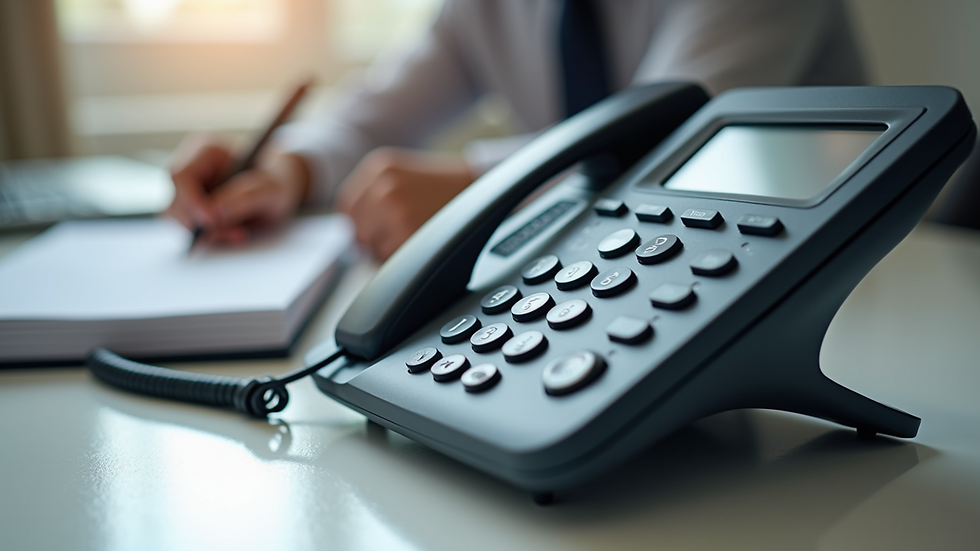Mastering Business Japanese for Professionals
- da shino
- Nov 22, 2025
- 4 min read
Learning Japanese for work can feel overwhelming. The language has unique customs and expressions that differ from casual conversation. But with the right approach, you can master essential business Japanese phrases and communicate confidently. I want to share practical tips and examples that helped me navigate professional settings in Japan. Whether you are a beginner or brushing up your skills, this guide will set you on the right path.
Essential Business Japanese Phrases You Need to Know
Starting with the basics is key. Business Japanese phrases often focus on politeness, respect, and clarity. Here are some common expressions you will use daily:
おはようございます (Ohayou gozaimasu) - Good morning (formal)
こんにちは (Konnichiwa) - Hello / Good afternoon
よろしくお願いします (Yoroshiku onegaishimasu) - Please treat me well / I look forward to working with you
お疲れ様です (Otsukaresama desu) - Thank you for your hard work / Good job
失礼します (Shitsurei shimasu) - Excuse me / Sorry for interrupting
ありがとうございます (Arigatou gozaimasu) - Thank you (formal)
These phrases set a respectful tone. Use them when greeting colleagues, starting meetings, or ending conversations. For example, when entering a meeting room, say 失礼します to show politeness.
Tips for Using Business Japanese Phrases
Speak clearly and at a moderate pace.
Use polite forms even if you know casual Japanese.
Practice these phrases aloud to build confidence.
Listen to native speakers to catch natural intonation.

How to Use Business Japanese Phrases in Emails and Calls
Written and phone communication require slightly different skills. Emails should be formal and structured. Phone calls need clear introductions and polite closings.
Writing Emails
Start with a greeting like:
```
お世話になっております。
(Thank you for your continued support.)
```
Then state your purpose clearly. For example:
```
先日の会議についてご連絡いたします。
(I am contacting you regarding the meeting the other day.)
```
End with a polite closing:
```
どうぞよろしくお願いいたします。
(Thank you in advance for your cooperation.)
```
Making Phone Calls
Begin by stating your name and company:
```
お電話ありがとうございます。〇〇会社の田中です。
(Thank you for calling. This is Tanaka from XX company.)
```
Confirm the person you want to speak with politely:
```
〇〇様はいらっしゃいますか?
(Is Mr./Ms. XX available?)
```
Close with:
```
お忙しいところ失礼いたしました。
(Sorry to have disturbed you during your busy time.)
```
Practicing these phrases will help you sound professional and respectful on calls and emails.

What is keigo?
Keigo is the honorific language used in Japanese business settings. It shows respect and humility. There are three main types:
Sonkeigo (尊敬語) - Respectful language used to elevate the other person’s actions.
Kenjougo (謙譲語) - Humble language used to lower your own actions.
Teineigo (丁寧語) - Polite language used to make speech more formal.
For example, the verb "to do" changes depending on keigo:
Plain: する (suru)
Sonkeigo: なさる (nasaru)
Kenjougo: いたす (itasu)
Teineigo: します (shimasu)
Using keigo correctly can be tricky but is essential in business. It helps build trust and shows professionalism. Start by learning polite forms and gradually add respectful and humble expressions.
Practical Keigo Tips
Use です/ます forms for polite speech.
Replace common verbs with their keigo equivalents.
When unsure, polite language (teineigo) is safer than casual.
Listen to native speakers and mimic their keigo usage.
Mastering keigo takes time, but it pays off in smoother business interactions.

How to Practice and Improve Your Business Japanese Skills
Consistency is key to mastering business Japanese. Here are some effective ways to practice:
Role-play scenarios: Practice meetings, phone calls, and emails with a partner or tutor.
Watch Japanese business videos: Observe how professionals speak and use keigo.
Use flashcards: Memorize common phrases and keigo forms.
Join language exchange groups: Practice speaking with native speakers.
Take online courses: Structured lessons help build a solid foundation.
I found that combining listening, speaking, and writing practice helped me improve faster. Don’t be afraid to make mistakes. Each error is a step toward fluency.
Why Learning Business Japanese Matters
Understanding business Japanese opens doors. It shows respect for Japanese culture and builds stronger relationships. When you speak the language well, you gain trust and credibility.
Plus, it makes travel and work in Japan more enjoyable. You can navigate meetings, negotiate deals, and connect with colleagues on a deeper level.
If you want to learn real, natural Japanese, I recommend checking out business japanese. They offer great resources for beginners and professionals alike.
Start small, stay consistent, and enjoy the journey. You’ll be surprised how quickly you can master business Japanese phrases and keigo.
Mastering business Japanese is a rewarding challenge. With practice and patience, you can communicate clearly and confidently in professional settings. Keep learning, stay curious, and embrace the culture. Your efforts will pay off in meaningful connections and career growth.



Comments